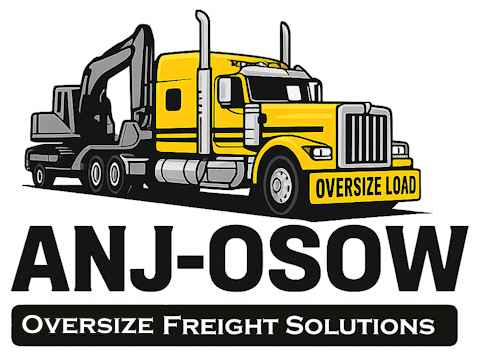Understanding Oversize Load Permits: What Trucking Companies Must Know
Moving oversize or overweight freight isn’t just about hooking up and hauling — it’s a regulatory minefield. Whether you’re an independent hauler or managing a full OSOW operation, understanding permits is non-negotiable. Here’s what you need to know to stay legal and avoid massive fines.
1. What Qualifies as an Oversize Load?
Every state has different limits, but generally:
- Width: Over 8 feet 6 inches
- Height: Over 13 feet 6 inches (can vary)
- Length: Over 53 feet (for trailers)
- Weight: Exceeds 80,000 pounds gross
The minute you cross these thresholds, you’re in OSOW territory and need permits.
2. Permit Types (State-by-State, County, Route-Specific)
- Single Trip Permits: Valid for one haul, one route, one date range.
- Annual Permits: Cover frequent travel on the same route or region.
- Superload Permits: Required for extremely heavy or large freight.
Pro tip: Some states allow multi-jurisdictional permitting (e.g., through the Western Regional Permit system), but most still require individual applications.
3. Route Planning: It’s Not Just GPS
You can’t just punch in the address and go.
- Low bridges? You’re screwed.
- Narrow roads? You’ll get stuck or cause damage.
- States provide routing software (like Florida’s FLHSMV tool or California’s Caltrans ARS) to ensure safe, legal paths.
Many routes require pilot cars, escorts, or even police in some urban areas.
4. Escort Requirements: Vary by Load & State
- Front/Rear Escorts: Often required for loads over 12’ wide.
- Height Poles: Needed if over 14’ tall.
- Police Escorts: May be needed in cities, near construction zones, or tight turns.
Fines for escort violations can hit $5,000+ and shut down your run.
5. Travel Restrictions & Curfews
- Most states prohibit night travel for oversize loads.
- No travel on holidays or weekends in many regions.
- Urban curfews (e.g., rush hour bans) are common.
Don’t assume anything — every permit has specific restrictions. One wrong move and you’re done for the day.
6. Common Mistakes That Get You Fined
- Exceeding dimensions listed on your permit
- Traveling outside approved hours or routes
- Not having escorts when required
- Permit expiration lapses
- Assuming “neighboring states” have the same rules (they never do)
7. Pro Tip: Use a Permit Service — But Don’t Rely Blindly
There are great OSOW permit services, but you’re still liable. If the route is wrong or the escort didn’t show, enforcement won’t care who filed it. Know your load, read your permits, and verify every detail.
Conclusion:
In oversize hauling, ignorance isn’t just dangerous — it’s expensive. The more you know, the fewer problems you’ll have on the road. Stay legal. Stay prepared. And when in doubt, call someone who knows what they’re doing.
